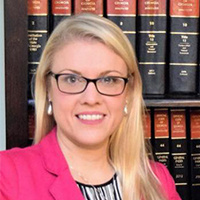Candler County, GA Divorce Lawyers, page 2
Sponsored Law Firm
-
 x
x

Click For More Info:
-
Mitchell & Reddock LLC
111 West Court Street Hinesville, GA 31313» view mapDivorce & Family Law A Law Firm You Can Trust
Mitchell & Reddock LLC handles cases involving Divorce and Family and Personal Injuries.
800-929-6960
Includes: Alimony & Spousal Support
Not enough matches for Candler Divorce lawyer.
Below are all Candler lawyers.
Judge Ogden Doremus
General Practice
Dan L. Lanier
General Practice
Hugh R. Kimbrough
General Practice
Status: Inactive *Status is reviewed annually. For latest information visit here Licensed: 109 Years
James Comer Trapnell
General Practice
Status: Inactive *Status is reviewed annually. For latest information visit here Licensed: 108 Years
L. C. Anderson
General Practice
Status: Inactive *Status is reviewed annually. For latest information visit here Licensed: 110 Years
 Katie Mitchell Hinesville, GA
Katie Mitchell Hinesville, GA